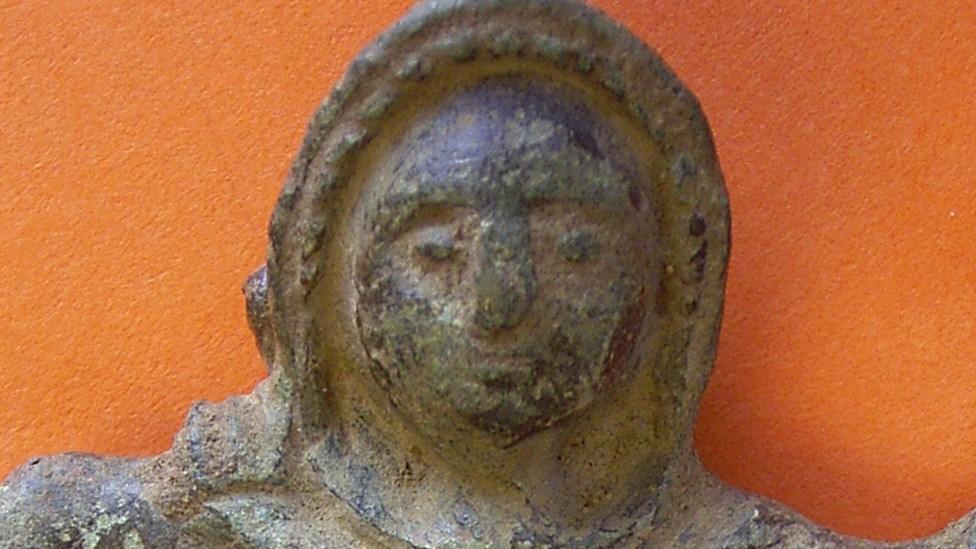Metal detecting: 'I dream of a find that changes history'
- Published
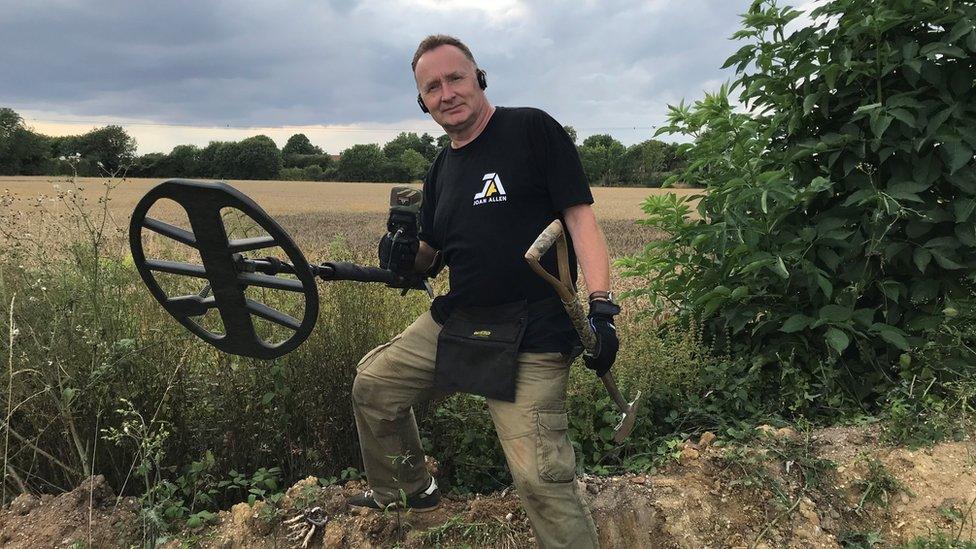
John Morton said the majority of his finds are "rubbish" including broken bits of farm machinery but 20 have been declared treasure
A man who has unearthed hundreds of artefacts in 40 years of metal-detecting says he dreams of finding "something that changes history".
John Morton, 57, from Wymondham in Norfolk, took up the hobby aged 12 when he borrowed a detector and promptly found a Charles II coin.
Two of his discoveries are now in museum collections.
But for him, the best part of detecting is "that moment when you turn over the soil and see a glint of metal".
His latest find, a gilded silver medieval brooch made from a French coin, has been declared treasure.
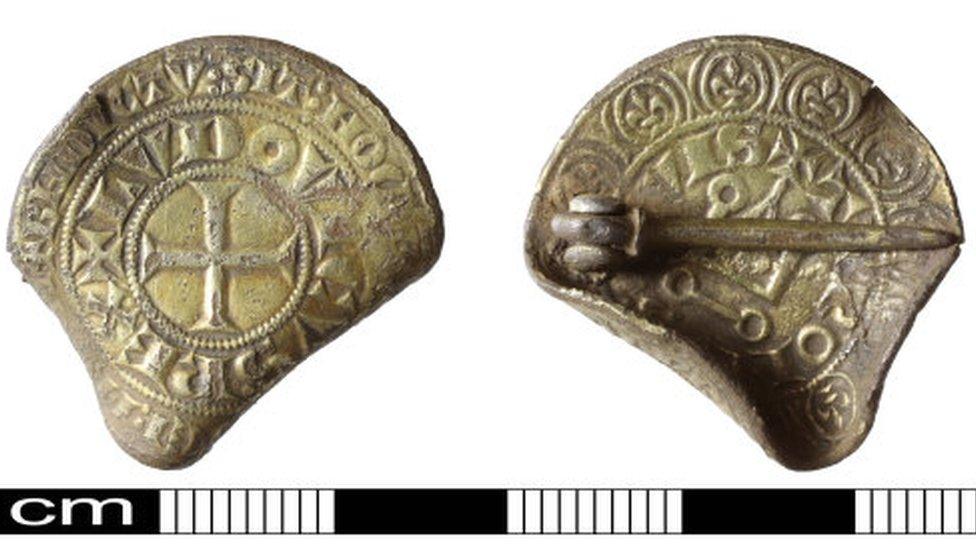
The gilded silver coin brooch discovered near his Wymondham home has been declared treasure by the Norfolk coroner
The detectorist discovered it quite close to home, having moved to Wymondham just before the first lockdown in 2020.
He knew the field's owner - who had given permission for the search - had planned to drill crops the next day, and an earlier find of a medieval lead pilgrim's ampulla - a container for holy water - suggested the field was promising.
"It didn't take long to find - I heard the signal, turned over the soil and there was this little glint of something, a brooch, a bit crumpled but in lovely condition," he said.
The hobby was "very much needed" during the pandemic when instead of travelling around the east of England as a specification manager, he was working from home "stuck inside the same four walls".
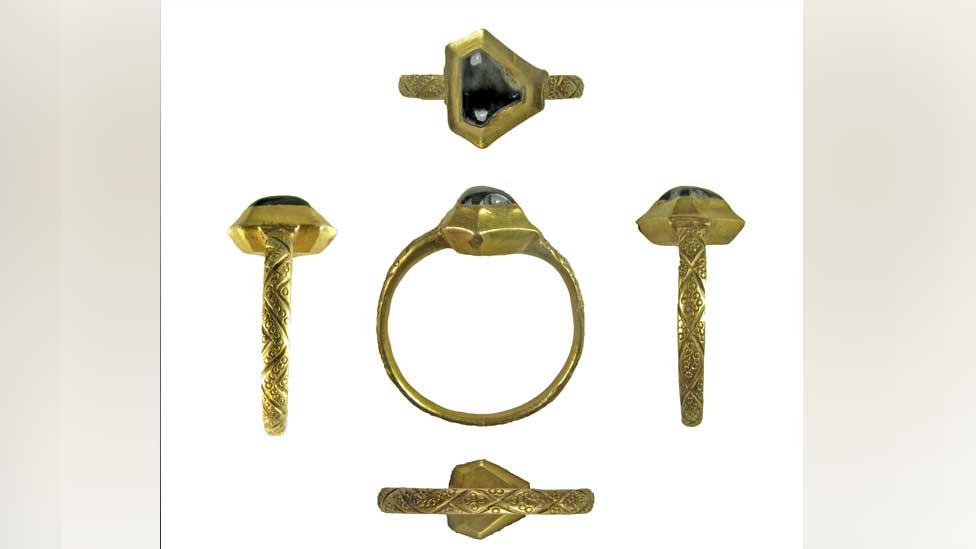
This medieval gold and sapphire ring now has its own display at Epping Forest District Museum
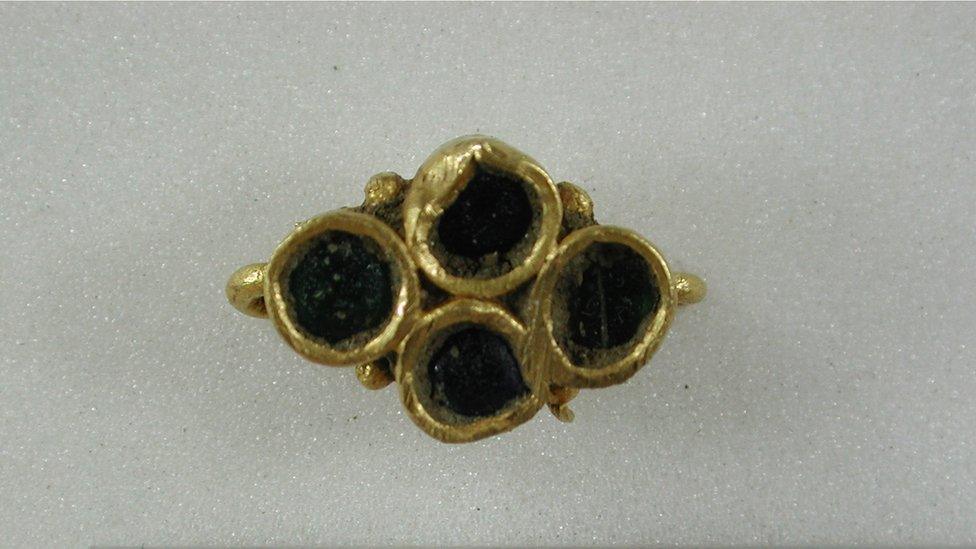
Another treasure find - a gold Roman clasp with blue and green glass - is now in Saffron Walden Museum after being compared to jewellery in the Thetford Hoard
Before the move, Mr Morton lived in Brentwood, Essex, where he is a long-term member of a metal detecting club, external.
His most spectacular find so far is the medieval gold and sapphire Willingale Ring, now on display at Epping Forest District Museum, external, discovered in a field he had been searching for 18 years.
"I washed it off, took it to the farmer and he couldn't believe it after all the years he'd allowed me to search," he said.
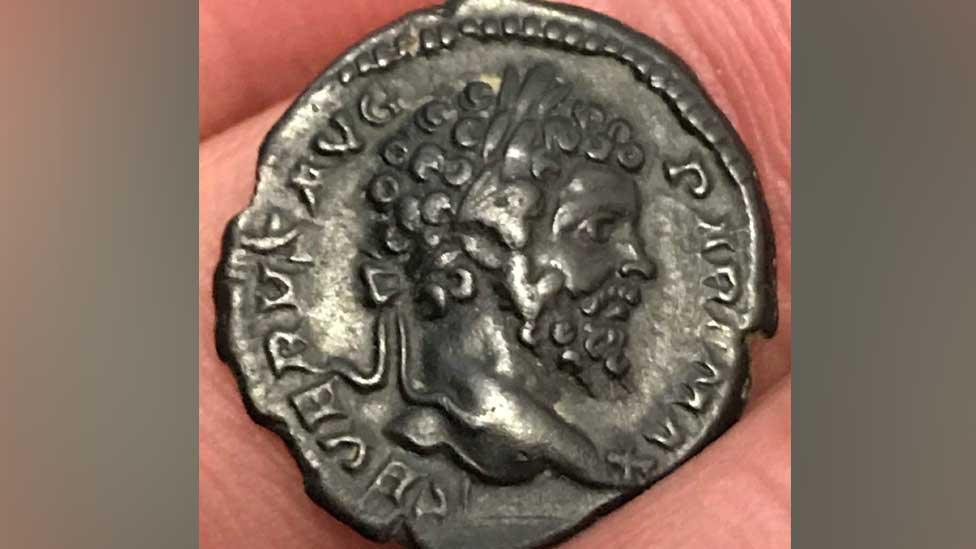
A Roman silver denarius of the emperor Septimius Severus, who reigned from AD193 to 211

Metal detecting and the law
No search can begin until permission has been given by the landowner
All finds belong to the landowner
Any find in England, Wales and Northern Ireland that is more than 300 years old, made of gold or silver, or found with gold or silver artefacts, could be treasure under the 1996 Treasure Act, external
These must be reported to the appropriate county finds liaison officer, external
Source: Portable Antiquities Scheme

Mr Morton "wouldn't like to think" how many hundreds of artefacts he has unearthed over the decades - the majority "rubbish", such as bits of farm machinery.
Others, including tiny bronze Roman coins worn smooth over centuries and silver medieval pennies, have very little value, but he just "loves to think about when they were last in someone's hand".
He said the hobby had grown in popularity since he began, something he credits to the "fantastic" BBC comedy series Detectorists starring Mackenzie Crook and Toby Jones, as well as social media.
The National Council for Metal Detecting, external's treasurer's report recorded a 10% increase in membership in 2020 to 2021, external.
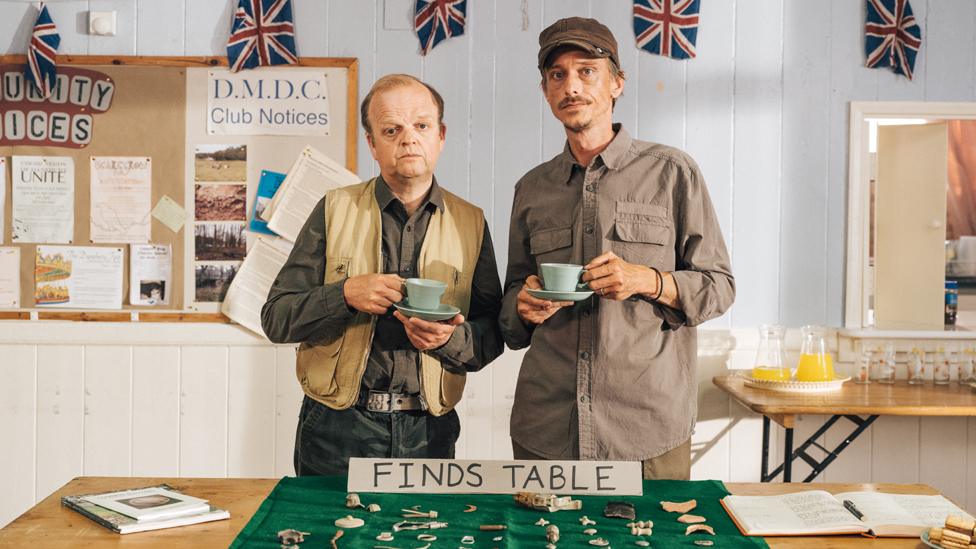
Toby Jones and Mackenzie Crook in the BBC series Detectorists
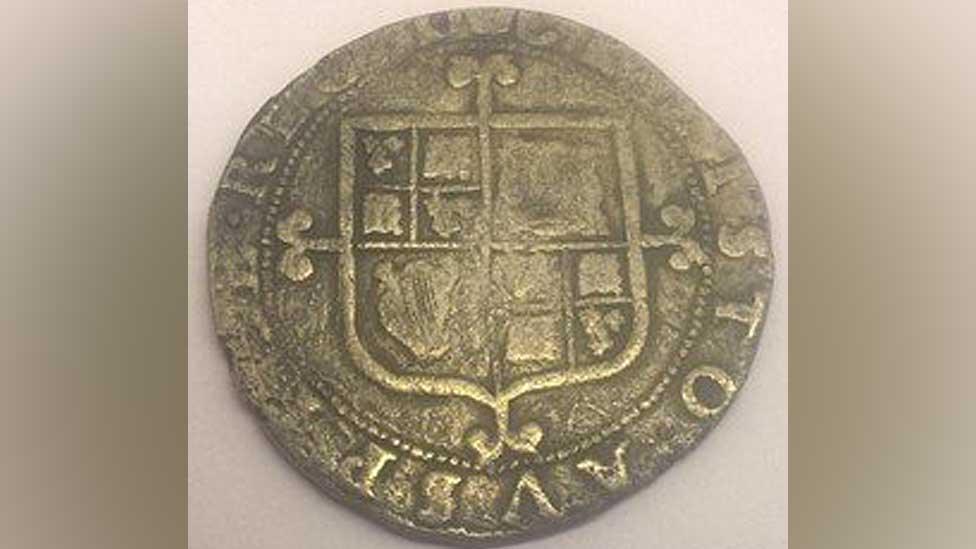
The coin that started an obsession, a silver Charles II half crown discovered on scrubby land behind his mum's house in Basildon
Mr Morton believes detectorists such as those jailed for stealing a £3m Viking hoard in 2019 are "a very small and unwanted element".
Since he unearthed the Charles II coin, 20 of his finds have been declared treasure.
But for Mr Morton "the dream is to find something that changes history - who knows what is still under the soil waiting to be discovered".
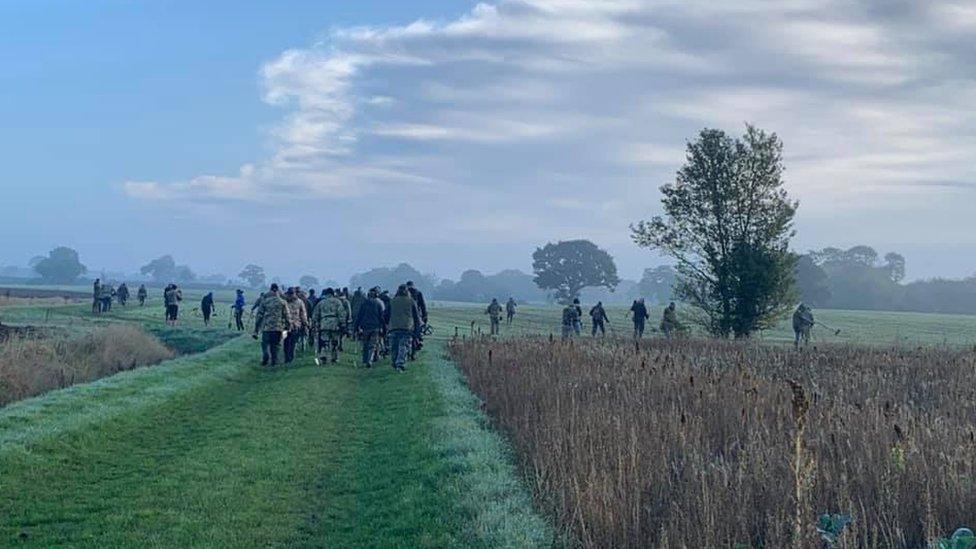
Mr Morton is part of a metal-detecting group which organises events
Find BBC News: East of England on Facebook, external, Instagram, external and Twitter, external. If you have a story suggestion please email eastofenglandnews@bbc.co.uk, external
Related topics
- Published18 July 2021
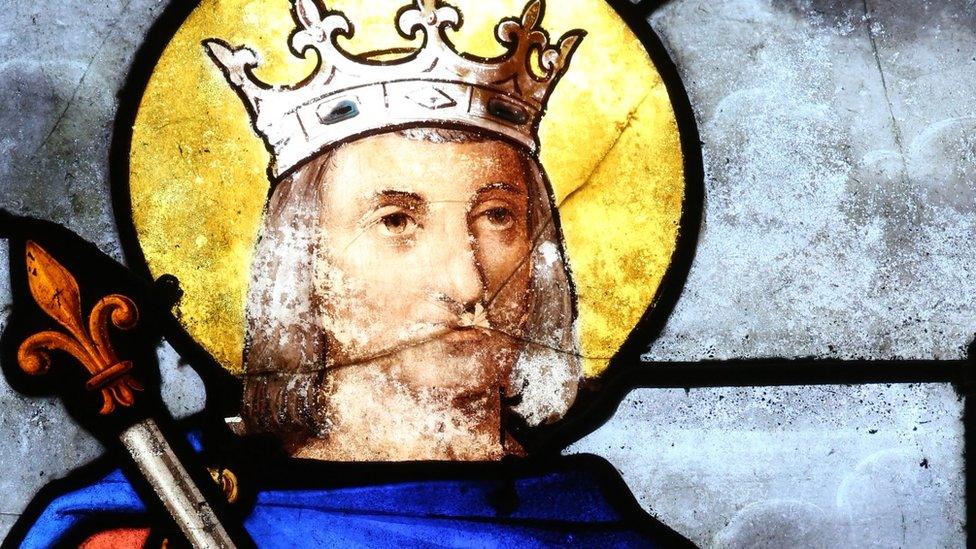
- Published4 December 2020
